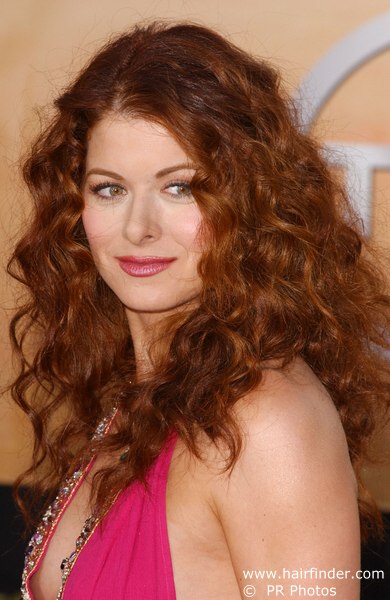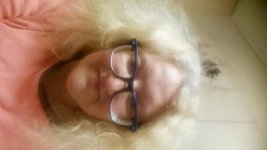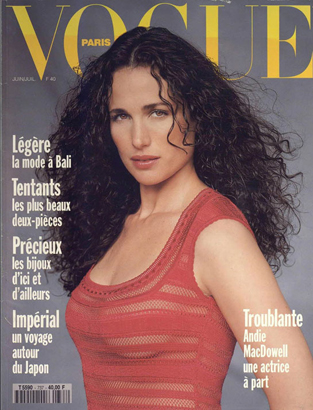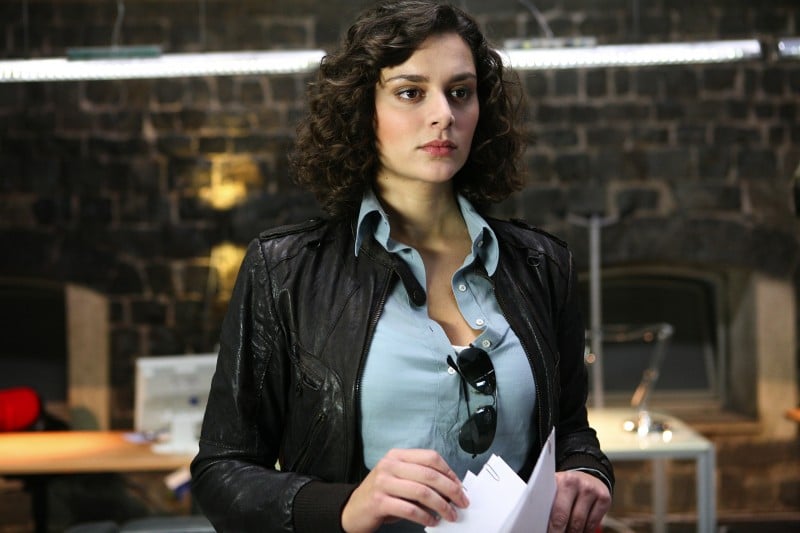I don't know its "origin" in Europeans. It's just a part of natural variation, although I could speculate that since it seems more common in Southern Europeans than in Northern Europeans it may be tied to Neolithic Near Eastern ancestry. An interesting phenomenon, however, is the number of "Celtic fringe" people who have naturally curly hair, like Nicole Kidman, for example. She really didn't know how to care for it at this stage; it was very dry, probably because she had lightened it, and wasn't moisturizing or conditioning enough. In the old days in Italy women used to put olive oil on everything but the scalp, and then wrap it in hot wet towels; a sort of deep conditioning with natural products. Of course, I always thought you might end up smelling like a salad!

All hair is subject to "frizziness" if the conditions are right, but curly hair more so than most.
I feel like I'm becoming the "style and beauty" editor, but what the heck!

"
Frizz occurs when the cuticle layer of your hair is raised, allowing moisture to pass through and swell the strands. As a result, your hair appears dry and frizzy instead of smooth and defined. In general, curly hair tends to have more frizz than straight hair because of dehydration in the strands, which leaves it more vulnerable to frizzing.Hair can become dehydrated for many reasons…
See below for reasons for dryness and ways to combat it.
http://moknowshair.com/combatingfrizz/
I have, or had, quite curly hair which is mainly just wavy now, but it was never particularly prone to frizziness. I think part of the reason is that I never had a dry scalp, and almost always brushed my hair before bed, which distributes the natural oils to the ends of the strands. It's also important, in my personal opinion, to consume healthy fats like olive oil.
Also, if you're not going to blow dry your hair, or, as in the bad old days, use curlers, it's very important that there are layers in your hair. Never get a blunt cut. Then, let it dry naturally, don't brush it, and "scrunch" it. It's actually a very easy way to go if you have naturally curly hair. In university I never straightened it. Shower, one comb through, add some mousse, then leave it alone except to scrunch occasionally to form the curls. Nicole Kidman has talked about how she so regrets having straightened her hair so much, because she thinks that's why it's no longer curly. I doubt that's the reason. It's usually aging. As hair whitens it also gets very frizzy, whether your hair is curly or not because the hair changes texture, becoming very wiry and much more brittle.
This is Debra Messing. You can see the layers. However, her hair is still slightly frizzy although I'm sure she used a mousse or similar product. A likely reason is that she's had her hair processed so often; she's not a natural redhead, although it really suits her.

Andie MacDowell has always taken much better care of her hair. This is from her days as a model. What they probably did here is to put small to medium rollers in her hair to make the curls slightly "fatter". Curly hair has tremendous body so it will keep this way for a whole day and beyond.
This is actually just her "natural" hair, probably.
This is not like actual SSA hair, which has a quite different texture, being very brittle, and rarely grows more than a few inches in length before breaking off.














